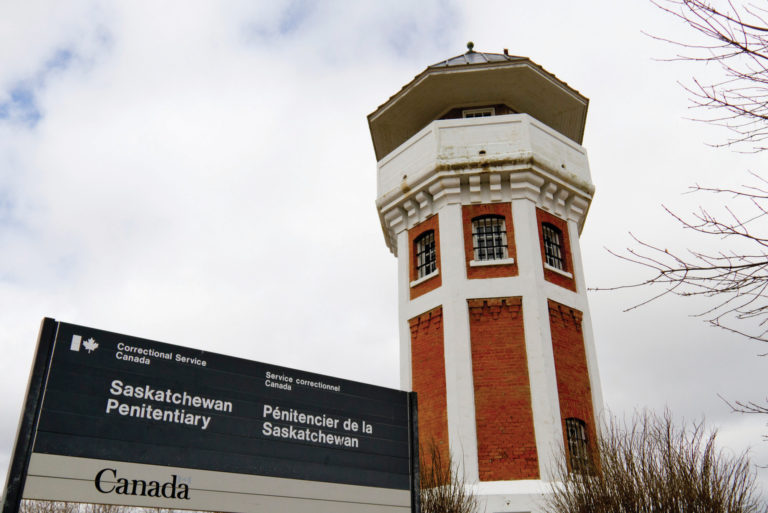
Witnesses remembered Daniel Tokarchuk as a quiet and private person who seemed to be physically and mentally healthy prior to taking his own life while in the Saskatchewan Penitentiary’s minimum security facility on June 7, 2017.
The first day of the public inquest into Tokarchuk’s death began at Plaza 88 in Prince Albert on Monday. It included testimony from the two corrections officers who were on duty when Tokarchuk died, along with the testimony from the on-duty correction manager.
Correction officers Brian MacAuley and Lori Mardell both told the inquest they believed Tokarchuk was in a normal healthy state when they checked in on him for the final time. When they couldn’t find Tokarchuk during an room check on the morning of June 7, MacAuley assumed the 44-year-old inmate had tried to escape. He said there were no signs Tokarchuk was suicidal.
“His behavior seemed perfectly normal,” MacAuley remembered. “He was a private guy (who) didn’t say much.”
Mardell echoed those comments in her own testimony, telling the inquest there were no warning signs Tokarchuk was about to take his own life.
“I know that he had family issues, but other than that, nothing,” she said.
Most of the questions focused on how often guards check in on inmates at the Sask. Pen’s minimum security facility. The rest focused on the response from corrections officers, and whether they had the appropriate tools to deal with a suicide attempt.
Both guards testified that they declined to use the radios they carried to call for help, relying instead on an emergency phone. Mardell said they can’t rely on the radios during an emergency because their messages don’t always come through clearly.
MacAuley also testified that he grabbed a knife from the kitchen to help cut Tokarchuk free from the strap he used to hang himself, instead of relying on the emergency knife (referred to as a 9-1-1 tool during the inquest) included as part of his kit.
Mardell testified that the corrections officers received little to no training in the use of the emergency knives.
“It would be nice to have a functioning 9-1-1- tool, so we wouldn’t have to run to the kitchen,” she told the inquest.
Those comments were a sticking point for coroner Timothy Hawryluk, who said corrections workers shouldn’t have to go looking for the best tools when dealing with an emergency.
“When there is a situation like (a suicide attempt), seconds count and minutes count,” he said.
Hawryluk was also concerned about the two hour time difference between visits. He said it may give inmates too much of a window if they know exactly when correction officers are going to be checking in.
MacAuley said corrections officers are required to check minimum security houses at two hour intervals, but try to check each house in a different order to help change things up.
Both guards, along with correction manager Keith Vizina, testified that nothing like this had happened in the minimum security wing their entire time working there. In Vizina’s case, that’s nearly 26 years.
“It’s quite rare,” he said.
Vizina said his major concern was the lack of staff that night. The minimum security wing only had three corrections officers on duty. They were stretched thin after MacAuley accompanied Tokarchuk to Victoria Hospital.
Inmates at the Sask. Pen’s minimum security live in units that resemble houses more than cells. Each house has living space for four inmates, with a common area, kitchen and laundry facilities. Inmates are required to be in the house by 9:30 p.m., but do not have to head to their room.
MacAuley remembers checking in on Tokarchuk only to find him sitting in a chair watching TV, something the corrections officer described as “perfectly normal.” The lights were out and the TV was turned off when he checked in again roughly two hours later. Once again, MacAuley said that was “quite normal.”
It was the third check where MacAuley discovered Tokarchuk was missing, but that also didn’t seem out of the ordinary. MacAuley testified that he originally thought Tokarchuk was in another area of the house, like the washroom, but neither corrections officer could find him after a quick search.
They peered through the five inch by 18 inch window into his room, and could just barely make out his body. The two corrections officers forced their way in, and discovered Tokarchuk had hung himself using a strap from a gym bag and a hook on the back of the door.
They called a third corrections officer, who called for an ambulance, then began CPR. They continued live-saving measures until an ambulance arrived roughly 10 minutes later. MacAuley rode in the ambulance with Tokarchuk until they reached Victoria Hospital just before 4 a.m. Hospital staff continued CPR, but declared Tokarchuk dead less than an hour later.
At the time of his death, Tokarchuk was serving an indeterminate sentence for multiple offences.
The Coroner’s Inquest into the death of Daniel Tokarchuk continues on Tuesday, starting at 9:30 a.m.
